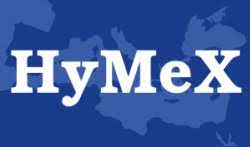
| |
| Home | |
| Objectives | |
| Campaign | |
| Database | |
| Research | |
| Publications | |
| Meetings | |
| Working Groups | |
|

Land surface Interactions with the Atmosphere over the Iberian Semi-arid Environment |


|
Objectives and science questions The overall objective of this new activity, the Land surface Interactions with the Atmosphere over the Iberian Semi-arid Environment (LIAISE) project, is to improve our understanding of the impact of anthropization on the water cycle in terms of land-atmosphere-hydrology interactions, and the limitations of models to represent all aspects of the terrestrial water cycle in a semi-arid environment on the Iberian peninsula. The main science questions can be summarized as:
LIAISE addresses the GEWEX Science Questions and contributes to WCRP's Grand Challenges, notably how a warming world will affect available fresh water resources globally, specifically in the food basket regions, and how it will change human interactions with these resources and their value to society. Another key GEWEX Science Question addressed by LIAISE pertains to improving our understanding of the effects and uncertainties of water and energy exchanges in the current and changing climate and how to convey this information to society. The improvement of the representation of anthropogenic effects in models will form the foundation for water resource impact studies under future climate change. These results will be communicated to water management services within the Ebro basin. A comprehensive database, consisting of surface-based and aircraft measurements of surface and hydrological fluxes and states and properties of the ABL, will be integrated into the Mediterranean Integrated STudies at Regional And Local Scales (MISTRALS)/HyMeX database, which can accessed upon request by interested researchers. This database of observations will form the basis for a number of international modeling experiments that will cut across many areas of interest to GEWEX, ranging from theability of LSMs to capture soil moisture dry down, the representation of heterogeneity and how this interacts with the atmospheric boundary layer, the impacts of human influence on land surface fluxes, land/atmosphere interactions the terrestrial water cycle of semi-arid environments. |
